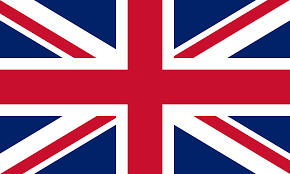
Chancellor Rachel Reeves faces pressure to fund social promises while calming markets as economic strains deepen…
Britain’s centre-left Labour government will on Wednesday unveil a budget built around tax increases aimed at reducing national debt and pumping fresh support into overstretched public services. The announcement comes as Prime Minister Keir Starmer seeks to deliver on campaign promises while keeping both financial markets and voters onside.
Starmer has pledged to cut National Health Service (NHS) waiting times and ease the country’s long-running cost-of-living crisis, commitments he hopes will reinforce Labour’s standing as the hard-right Reform UK party gains traction in national polls.
However, the burden of turning those goals into reality falls on Chancellor of the Exchequer Rachel Reeves, who must persuade households that help is coming while reassuring investors that the government’s finances remain disciplined.
“I will not take Britain back to austerity, nor will I lose control of public spending through reckless borrowing,” Reeves said in a statement ahead of the budget speech.
In the run-up to the announcement, Reeves has unveiled several measures intended to offer relief: above-inflation increases to both the minimum wage and state pensions, and freezes on rail fares and prescription charges.
But closing an estimated £20-billion ($26-billion) hole in public finances is expected to depend heavily on tax rises, particularly those affecting workers.
Concerns over potential tax hikes have rippled through households and small businesses.
James Fitzegerald, landlord of the Thatched House pub in west London, told AFP that soaring costs from food and alcohol duties to staff wages have left businesses struggling.
“Things are only going one way, and it’s downhill. We need real support from the government to stay viable,” he said.
Britain enters budget week with a deficit nearing 5% of GDP, inflation still elevated, and the economy stagnating as unemployment edges higher. Reports also suggest the UK’s budget watchdog may downgrade economic growth projections for every year of the current parliament compared to forecasts issued in March.
Financial markets are watching closely. A negative reaction to the budget could trigger a sell-off of UK government bonds, driving up borrowing costs and complicating Labour’s spending ambitions.
‘The Economy Isn’t Working’
Since returning to power in July 2024 after 14 years of Conservative rule, Labour has found it difficult to achieve steady economic growth. Reeves’ decision to raise business taxes in her first budget has been repeatedly blamed for slowing momentum.
“The cost of living remains the number one concern for working people, and the economy isn’t working well enough for those on the lowest incomes,” Reeves said Tuesday, acknowledging that too many families continue to struggle.
Starmer and Reeves have also taken political hits over policy U-turns. A backlash from Labour MPs forced retreats on plans to cut disability benefits and reduce fuel payments for pensioners.
In the latest reversal, the chancellor has reportedly abandoned a proposal to increase income tax, an idea that would have contradicted Labour’s campaign commitments.
Instead, Reeves is widely expected to extend the freeze on income tax thresholds, a move that will push more workers into higher tax brackets despite her prior pledges. Additional revenue is expected from raising levies on gambling, introducing a “mansion tax” on high-value properties, and capping certain pension benefits.
Ahead of the budget announcement, the Department of Health also confirmed the expansion of the UK’s sugar tax to include pre-packaged milkshakes and other milk-based drinks.



